Antonia Malchik Is Exploring How We Own The Land
....and how we'll explore Space! (Hey, don't get her started on THAT one.)
Hello! This is Everything Is Amazing, a newsletter about curiosity, attention, wonder - and immensely interesting people with something to say.
If there’s one thing I have to thank my newsletter for, it’s reintroducing me to the stellar work of writer Antonia Malchik.
She’s the author of the book A Walking Life, a beautiful science-driven manifesto for reclaiming the power of a life mostly lived on our feet, and the author of essays in publications like The Atlantic and Aeon and The Walrus and other places you’ll find really thoughtful writing (this piece on the destructive influence of cars on America is a favourite of mine).
And right now, she’s assembling her second book within a Substack newsletter called On The Commons, which I recommend to you wholeheartedly.
(If you also read Anne Helen Petersen’s Culture Study, you’ll have recently seen Antonia over there interviewing Sherri Spelic on the importance of physical education.)
When I first chatted to her years ago on Twitter and learned what she writes about, I thought I knew the kind of writer she was: you know, brain the size of a planet, brimming with fascinating worldly wisdom, living her life with both her feet planted on the ground in a way few of us dare to…
She does indeed seems to be all that. But what I only learned recently is that she’s also a massive science fiction nerd.
Actually, this shouldn’t have surprised me. She’s someone who explores ideas around land & property ownership, of the way we’ll need to learn to cooperate better with our limited resources and new social technologies to create a fairer, more future-resilient world - so of course she’s a scifi nerd. This is partly what scifi is for, to play with these ideas properly. (This is what I tell friends who hate scifi, and really, I should just point them at Antonia’s work instead. That’ll do it.)
So after reconnecting over Substack, we started throwing emails back and forth that, um, increasingly took less and less time to collapse into massive scifi nerd-outs? (Don’t get us started on, say, the economics of The Expanse, or the ideas underpinning The Murderbot Diaries. Best not.)
Antonia has the liveliest of minds and is always a joy to chat to. And I’m happy to say that we managed to go for a full 41 minutes of this interview before it turned to scifi - something of a record for us. (It wasn’t easy! But sometimes writing a newsletter requires great personal sacrifice.)
Read on for Antonia’s thoughts on successfully abandoning social media, charting a new course with her writing, and the details of her current life in Montana with the wilderness just a short walk away from her front door.
This interview has been edited for length and clarity, and is split in half (second, much nerdier part coming soon).
M: So, I’m not sure what’s going on here - you’re the third person I’ve interviewed for this newsletter who has also featured on the Mountain & Prairie podcast - there was Anna Brones (her M&P interview here), there was Brendan Leonard (ditto), and now you. I don't know what's going on. It's like Everything Is Amazing: a newsletter about creative life in the American West.
A: I don't know how to explain that, other than, you both have a tendency and an ability to just follow your curiosity. And Ed (Roberson, the podcast’s host), I think he sticks with a certain sphere of interests in the American West, like conservation (his field of expertise), or he interviews artists and writers, and also a lot of ranchers. So it kind of maintains itself within that sphere. I mean, I was at a book launch last fall, and there were three of us who had been on his podcast.
M: Hah! And he's such a great interviewer too.
A: He is. It’s quite a skill. I have trouble when I'm researching for an essay or a book, persuading someone that I'm not a journalist. I really am just curious about what they're researching and what they have to say about it and their interpretations - but it takes a little while, because people assume a nonfiction writer is a journalist, and that has a certain connotation for them. And I was one, for a couple of years, and I was terrible at it! I hate confrontation and I’m really shy and I loathe talking on the phone. *laughs*
M: And that feeling of being interviewed, it's like you suddenly feel the need to play a role? And that can quickly turn both sides defensive. I don't know how really good interviewers handle that.
A: You know, it's interesting. I don't know if you find this, but I find with social media, there's parts of yourself that you're carving off and being careful about - when I go on a podcast, I always listen to as many episodes as I can just to try to get a feel for it. And then I find I'm shaping everything to what their interests are.
M: That's a very professional way of doing things! And it's the skill of listening - or research as listening. Hosts of great podcasts are very good at deeply understanding what you're saying. And not interrupting out of enthusiasm, which is a thing that I do all the time, saying Oh, that's so interesting which interrupts both of us. But the good interviewers, they hold back their natural enthusiasm - and they focus it. It reminds me of Sophie Stephenson, who I interviewed in the first season of this newsletter. She teaches attention and listening, particularly to women. I wonder, are men worse at interrupting, especially when we’re less of an introvert than the other person? Are we the ones that need more help here? I don't know, I need to look at this further.
A: One of the people who, as Anne Helen Petersen puts it, “lives rent free in my head” is Sam Harris, and that's one of the many reasons I stopped listening to his podcast. No matter how interesting the person he was interviewing was, it felt like it was just increasingly an opportunity for him to step in and complain about the things that bugged him about society, often on things I really disagree strongly with him about. Like it was a little tennis court setup rather than an exploration? And I was like, well, this is boring.
M: One thing I really admire about you is your ability to say No and step away from things, and especially social media - which can be a very combative kind of conversation style, an aggressive way of learning something new. Less “here I am, ready to learn something” and more “I've got something that I want to prove to you is correct”.
A: You've opened up insight into why I stopped using Twitter. I know we've talked about that. I don't have a Twitter account now, but I can still look at it, and - oh my gosh, when I do, I am literally looking for things to confirm my own biases about something, and also looking for people who are doing battle with either the people or the arguments that I disagree with, right? Even if I'm not on there doing it, I’m still looking for it, and bringing that energy into whatever my interaction is.
M: Yeah, and it's very hard to maintain not having an opinion on something on Twitter. I am fascinated by how quickly I can become, well, radicalized, in a sense? Highly opinionated, anyway. It's exhausting. It made me change how I use it, putting a fence around the way that I want to interact with Twitter, so if I end up clicking on Home and start scrolling, that's it, I'm flicking to the other mode which is just responding defensively, without curiosity.
A: I used to love science Twitter. And archaeology, and the really interesting people on there, like Mary Beard, for Roman Empire stuff. Why can't we just have it like that, instead of all the rage and hate? I mean, I know we both follow the Centre For Humane Technology [its in-house podcast, Your Undivided Attention, is really eye-opening] and we know all the structures that can make this so addictive and angry, but - why Twitter specifically attracts so much toxicity? I'm not sure if anyone's fully explained that.
M: So, how do you now get the good things that you were getting from Twitter? How do you feed yourself with those things now?
A: When I left Twitter, I thought really hard about it. I disabled my account, giving it the 30 days to restart before you lose your username. So I took that 30 days to think about how I was actually going to find the information that I stumbled across on there. Because - I think it was Zeynep Tufekci, who writes about authoritarianism and social media and just does a ton of great research. I came across her when I was on Twitter and used her research in my book and continue to learn a lot from her. How do I find people like that? It felt like a risk, to trust that if you need to find something, eventually you're somehow going to find it another way.
So I thought, well, who are some of the people I trust? And at that point, Substack didn’t exist but other forms of newsletters did, and so I subscribed to Ed Yong's newsletter, which he doesn't really update anymore, but at the time, he was putting it out fairly regularly, and he would have stories on there. I subscribed to The Atlantic. There were a few other things that I knew would open little doors. And then I have a Slack group. I think there's eight of us. It's really small and it's just science and creative nonfiction writers. And there's a couple of botanists and there's an Arctic researcher, and since they're all very curious people and do other research, I can hear about all sorts of stuff through them.
So it's a lot of similar channels of information. And the result is: I can say I'm not on social media anymore - but in a way, I’m dependent on people who are!
M: I hear that. I've almost severed ties a few times, most recently with Facebook, but I still keep up with friends and family through it. But I think I feel better for not using it for work purposes? It’s just hard to realise that you've created these digital connections that you can't get rid of, because they’re with the people and you want that, and that’s why we started using the tech, because it helped us connect, but they’re tied into the platform and now we can’t function without a certain level of using these services, It's also a version of what happened the first time I got a mobile phone. It's very interesting how these pieces of technology creep into our brains and make a home there, but then start quietly moving the furniture around when we’ve got used to them.
A: The other day I was listening to the Futures podcast, which is one of the regular ones I enjoy. Often I initially think, I don't really think I'm really interested in that topic, but then I listen and the interviewer Luke Robert Mason is very good, and really coaxes out deeper conversations about futurism in tech. And he's talking with a guy who studies and writes about virtual reality - and you know, the whole conversation is what is real? What's the difference between that and virtual reality? The last thing they were saying was, is it “actual” or not, and when you're talking about social media, yes, those are real, actual connections there. There's real energy flow and relationship flow that's going back and forth there. That said, I really don't miss Facebook at all, but there's one family friend - I always love seeing pictures of her grandkids, and I'm always saying just email them to me and she doesn't! But that's her place where she puts her stuff, and I have to accept it.
M: I remember we were chatting for a while on Twitter before you left it, and I’ve followed your work ever since, and really enjoyed seeing how you’ve thrived without it.
A: When I was travel-writing? Yeah, that's right. That was way back…
M: Ages ago. And it’s strange how small the circles can seem - I first met Anna Brones on my very first writing gig, an eco-friendly lifestyle magazine based in San Francisco. And since then she’s written a book with Brendan Leonard, whom I got to know through a different friend, the adventurer Alastair Humphreys. Sometimes it seems the online world is like - houses on the same street? And increasingly centered on Montana! Last week I was chatting with a new subscriber and discovered she was in Montana, and this was on the same day I watched the premiere of Star Trek: Strange New Worlds, which features Captain Pike riding his horse across the plains of - guess where! - in the dead of winter. Have you noticed a new Hollywood-driven fascination for your home state?
A: *laughs* Oh yeah! But to ride a horse across the plains of Montana, you generally have to own a lot of land.
M: Okay. So it's like, the one stretch that everyone uses for riding horses during filming. One long field, available to rent.
A: It's like the movie A River Runs Through It. They filmed that in one location, and everybody suddenly wanted to come fly-fishing in that one place. And there's lots of rivers here! But yeah, Montana’s a special place and it attracts a special kind of people, an unusually wide variety, I think. I saw the other day…I should have written it down, but I think the landmass of the UK, including Northern Ireland, versus the landmass of Montana? Well, Montana is actually slightly larger. Yet we only have a little over a million people. [The UK is 67 million.] When you have that few people across so much land, you really feel that connection to nature. But then you also think, why are there no good coffee shops around here? I mean, where I live, there’s a few good coffee shops, because it’s a tourist town…
B: I gather from reading Brendan's work, you just need to take up ultrarunning! There's aid stations with endless coffee and pizza and so on. You just have to run nonstop for 8 hours first.
A: I can’t do it! I admire enthusiasts like Brendan, and also Ed of Mountain & Prairie, he loves it, he has a lot of ultrarunners on there. It's just not my thing. My thing is walking.
M: So do you feel like your corner of Montana is out in the wilds? It's like what the countryside is seen as, here in the UK? How would you describe it? Like, recently you were writing about the lack of buses…
A: Yeah, we do have a bus system, but it does pick-up on demand. So, say, if you can't drive anymore and you need to go to a doctor's appointment. It used to run between the towns, but I think that stopped during the pandemic. The town I live in is about 7,500 people. So it's relatively small population-wise - the next town over, where my dad lives, is 30-something thousand. So it doesn't feel rural, but within even a five or ten minute drive, it suddenly feels very unpopulated. There's still quite a bit of farmland around, and theoretically I could walk out my door, walk the trails to the edge of town, keep walking along a gravel road, and soon I’m in a million acres of what could be called wilderness. So the valley that I live in feels pretty populated to me. In town we'll see traffic all the time, but you can leave it all behind very easily.
And this kind of weirds people out sometimes, especially visitors. You hear these jokes about people going to Glacier National Park, which is nearby, and they're like Hey, when do they let the bears out for the day? like it's a zoo. I think having grown up in Montana, it feels kind of crowded, because the tourism - especially the last couple of summers - has been overwhelming for the system. But realistically, compared to the rest of the world, it's quiet.
M: So with all of that on your doorstep, you used to do travel writing, but you don't now. Your work has evolved into, I would say, its own thing? I’m curious about why you chose to do that.
A: Well - early on, I remember just really immersing myself in all those wonderful travel writers that I'm sure we both read and love and follow and wish we could be - and I got to the point where I realised that some of the best travel writing I really like is place-based. And then you see a writer who's kind of stereotyping people, or doing a competent job but it's still characterizations that are ‘other-ising’? I've seen it happen about Montana so often - they send someone out from a national newspaper because…okay, a real example: there's this great bar in the city where my grandmother used to live, which is over on the more plains and farmland part of the state, not in the mountains. It’s a funky little place. A newspaper, I think it was the New York Times, sent someone out who wrote this story about “life in Montana.” And they wrote stuff about this bar that I’m sure they thought was funny but it was awful. It felt dumb and silly. When you see the way that they describe a place that you know really well, and the people you know really well and you're like, ohhhh, that's what we do to other places.
I still really love travel writing because I love the places, and getting to feel like you know a place through someone else. But there was the time when I lived in upstate New York and I wasn't travelling very much, but still doing some travel writing. And I had kids - and I gotta say, trying to write curious, place-focused travel with kids, it's like nobody wants to hear. They just want to plug that into a category of “family travel”. But you're still in a place and still looking outward, you're still interacting with people. In fact, you're interacting with more people when you're walking around with a baby or child. People want to talk to you and ask questions. It’s a new way to connect and get people to open up.
M: Right - so, it’s like the definition of travel writing in most people's heads is that it's people who go to other places, not people who are in other places. The travel writer is somebody who travels around a lot and isn't from where they write about. So - what could you call the other type, “place writing”? There's a wonderful book by Sofka Zinovieff about Greece from the perspective of moving to Athens with a Greek husband and becoming part of a family and of Greek urban society. One of my favourite pieces of book-length “travel writing”. So - I wonder if travel writing is evolving and leaving its stereotype definitions behind?
A: We talked about that essay of the author who used his own evolution as a travel writer?
M: Yes, Henry Wismayer’s piece at Aeon.
A: Yeah. And - I'm sure you had those debates, like, are you a traveller or are you a tourist? But really it’s about, are you writing from the perspective of the place itself? Or someone looking at it from the outside? And if you're intending to write up the perspective of the place, how well do you truly understand it? And how aware of that are you?
For example, I am happy to write about Russia a lot, and I feel like I know the place quite well, because my father's from there and I have spent a lot of time there. But how well do I really understand it, compared to someone living there now? I don't think I can ever fully answer that question because I haven't been there in years and I didn't grow up there. I grew up with the flavour of it. But sometimes that’s not enough.
Yet there are people who have that skill. I remember New York Times correspondent Hedrick Smith wrote a book in the ‘70s about living in Moscow - my parents actually wrote him after he published it, to tell him how accurately he captured the place and culture and society. That was pretty cool.
M: But it’s interesting seeing the shift away from this kind of helicopter journalism, where increasingly, long-term local voices are favoured more than someone just dropped in on assignment. There was obviously a lot of that during the pandemic, because nobody could move around. But this deepening of the relationship that you have with the place that you're living in, and this understanding that there is a depth, and it’s worth exploring, not just escaping from at the earliest opportunity? And that overfamiliarity makes you tune out a place, especially one you already think you know…
A: I think you can get really philosophical about it. There's this Canadian guy - I’d call him a philosopher, I’m not sure how else one would describe him - called Stephen Jenkinson. He was on a podcast called The End Of Tourism, and the focus of the podcast was the relationship between tourism and colonialism. It's a really important theme for me to try to get my head around, because of the themes in my newsletter (see below).
He was talking about how tourism started: how this idea of travelling to places for respite was born partly out of enclosure of the commons, when access to nature and land was taken away from the majority of people, and they had to go start working in factories and industry to sustain themselves. And so he talks about how tourism had come out of this denial of a relationship with the land.
It’s a really interesting kind of evolution - and then, you can see how we bring that colonialism unconsciously with us in modern times when we're touristing. I happened to listen to that episode while we were in Hawaii for a family vacation, so it felt especially relevant.
Thanks, Antonia!
If you want to read more on this topic, here’s Antonia’s overview of her newsletter, On The Commons:
“Ownership: Imagine two people, the only people in existence, facing each other in a meadow. One person places a rock between their feet and says, “Everything on this side of the rock is now mine.” Does the other person acquiesce or not? What if one of them has access to fresh water and the other doesn’t? What if one has a weapon and the other doesn’t? Will they fight over the invisible line spilling out from that single stone, or agree on it? Will their descendants seven generations hence feel bound by their choices?
The battle between private property and the commons goes back millennia. Land, water, commodification, governance, and relationships—they are all commons, from global to hyper-local. We need the commons to ensure well-being for all. But first, we need to relearn what “the commons” means, why they matter, how they’re taken from us through enclosure or erosion, and how we could relate to them differently. Only by getting to the roots of these issues will we have the power to oppose further privatization that benefits only a few. How we approach and define ownership has profound implications for our lives.”
Sign up for it below:
Images: Antonia Malchik, Steven Cordes, Paramount.

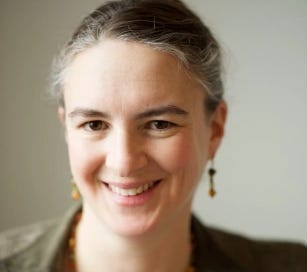



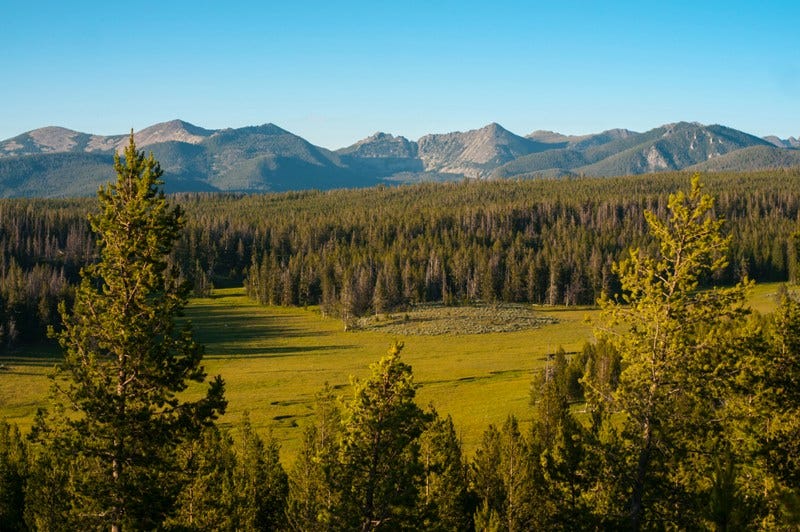
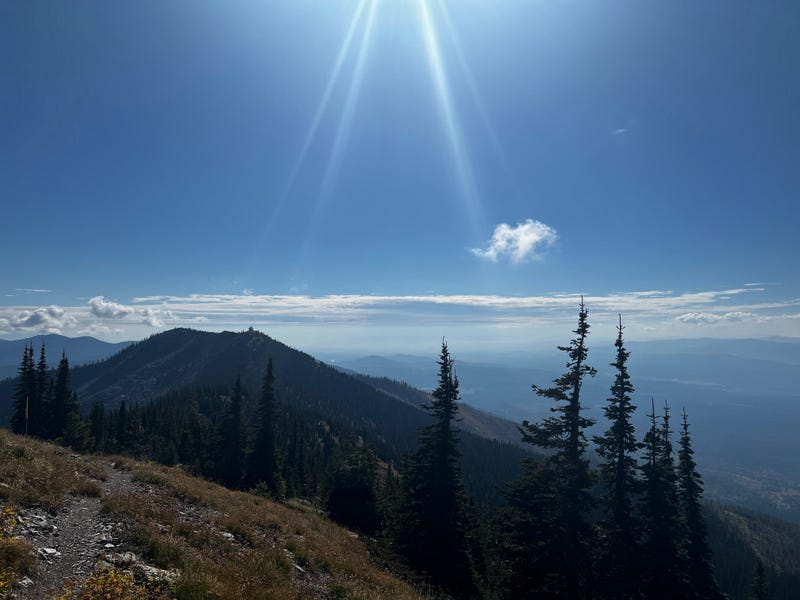
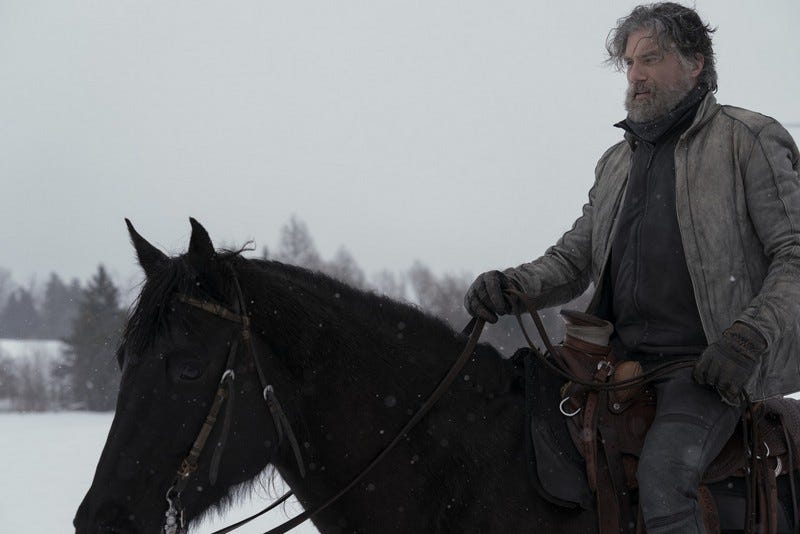
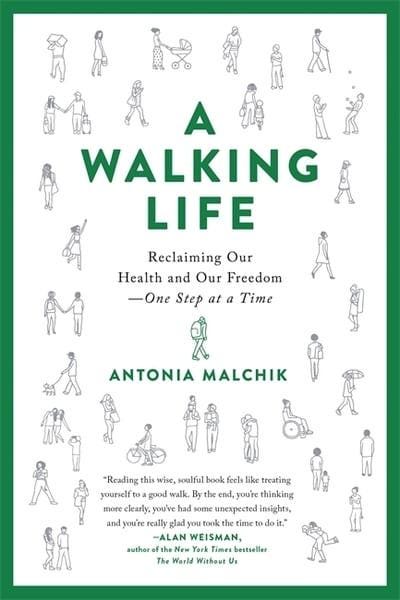

I don't know if I'm meant to click "like" on my own interview or not? But it was so much fun talking! I can't believe we went on for this long and didn't even get to the science fiction conversation! (I was just recommending "The City & the City" to someone again the other day -- such a mind-altering, great book, and one you got me to read.)
Thank you. You have introduced me to some refreshingly original thinking. In this world of being snowed under by the sheer weight of the internet, the “Cloud” and the never disappoints world of social media - it is a welcome event. So much of what we prattle on about is a rehash of partially digested, poorly imagined swill.
How do we recognize some sort of truth? It makes us feel as if we just were transported into the natural world of fresh air and a scent of healthy soil from some dark dank dungeon of a city.
My understanding of land ownership and the importance of walking stems from the time the State of California stole my childhood home using Eminent Domain. My old homestead became a center of the Interstate freeway system and a Bart Station.
This led to a lifetime of rediscovering the value of walking. Among other things.